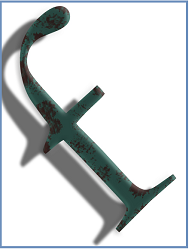AVALIAÇÃO JUSTA E DEMOCRÁTICA OU SABER LEGITIMADO COMO PUNIÇÃO? A AVALIAÇÃO PELO OLHAR DA ADF
DOI:
https://doi.org/10.22481/folio.v12i1.6566Resumo
A partir das teorias que envolvem o processo avaliativo da aprendizagem, torna-se possível conceber a avaliação como ferramenta indispensável na tomada de decisões do professor. Na verdade, a avaliação, no presente texto, será considerada para além disso, pois destacamos preceitos analisando-os, indicando-a parte constitutiva do discurso escolar e do discurso pedagógico. Nessa direção, pelo aporte da vertente francesa de Análise de Discurso, voltamos nosso olhar para práticas que indicam a ideia de avaliação ideal (e por vezes idealizada) pautada no bom planejamento e condizente com a realidade dos discentes e descrevemos o modo como os discursos funcionam, analisando a tendência de a formação classificatória perpassar o processo avaliativo. Percebemos que o discurso legitimador da avaliação prevalece, superestimando sua face regulatória, na medida em que ela deve fornecer (e muitas vezes não fornece) bons indicadores para os processos de didatização. Ao considerar a escola a partir de uma perspectiva discursiva, destacamos o que acreditamos ser dois fundamentos efetivos diretamente relacionadas à avaliação, a saber: o discurso pedagógico e o discurso escolar – a partir das concepções de Orlandi (1996). Nessa perspectiva, no presente texto, traçamos, pela ótica francesa de Análise de Discurso, uma reflexão acerca das estratégias avaliativas, a fim de buscar compreender melhor o processo de acompanhamento da aprendizagem, sua função e a forma como os discursos perpassam o contexto escolar, especificamente na avaliação escolar de aprendizagem.
Downloads
Referências
• AMORIM, Vanessa; MAGALHÃES, Vivian. Cem aulas sem tédio. Porto Alegre: Padre Reus, 1998.
• BARRETTO, Elba Siqueira de Sá. A avaliação na educação básica entre dois modelos. Educação & Sociedade, ano XXII, no 75, Agosto/2001.
• BIAVATI, Nadia Dolores Fernandes. Entre o fato e a regra: unidade e fragmentação na constituição da identidade e representação de valores e práticas do professor-mosaico. 2009. Tese (Doutorado em Estudos Linguísticos) –Faculdade de Letras, Universidade Federal de Minas Gerais, Belo Horizonte, 2009.
• ESTEBAN, M. Teresa. Avaliação: uma prática em busca de novos sentidos. Rio de Janeiro: DP&A, 2003.
• _______. Microfísica do poder. 21 ed. Rio de Janeiro. Graal, 2005.
• _______. Vigiar e Punir: Nascimento da Prisão. 30. ed., Petrópolis, RJ, Vozes. 1987.
• HOFFMANN, Jussara. Avaliação mediadora: Uma prática em construção da pré-escola à universidade: Editora Medição, Porto Alegre, 2006.
• LIBÂNEO, José Carlos. Didática. São Paulo: Cortez, 1994.
• LUCKESI, Cipriano C., Avaliação da aprendizagem escolar. São Paulo, Ed. Cortez, 1996.
• _______. Carlos. Verificação ou avaliação: o que se pratica a escola? São Paulo: FDE, Série Ideias n. 8, 1998.
• MACEDO, Lino de. Avaliação na educação. Marcos Muniz Melo (Organizador). 2007.
• MORETTO, Vasco Pedro. Prova – um momento privilegiado de estudo: não um acerto de contas. Rio de Janeiro: DP&A, 2001.
• ORLANDI, Eni Puccinelli. A linguagem e seu funcionamento: as formas do discurso. Campinas: Pontes, 4. ed. 1996.
• _______. Paráfrase e polissemia: a fluidez nos limites do simbólico. Rua, v. 4, n. 1, p. 9-20, 1998.
• _______. A linguagem e seu funcionamento: as formas do discurso. 4. ed. rev. e aum. Campinas: Pontes, 2003.
• PÊCHEUX, Michel et al. Análise automática do discurso. Por uma análise automática do discurso: uma introdução à obra de Michel Pêcheux. v. 3, 1990.
Downloads
Publicado
Como Citar
Edição
Seção
Licença






